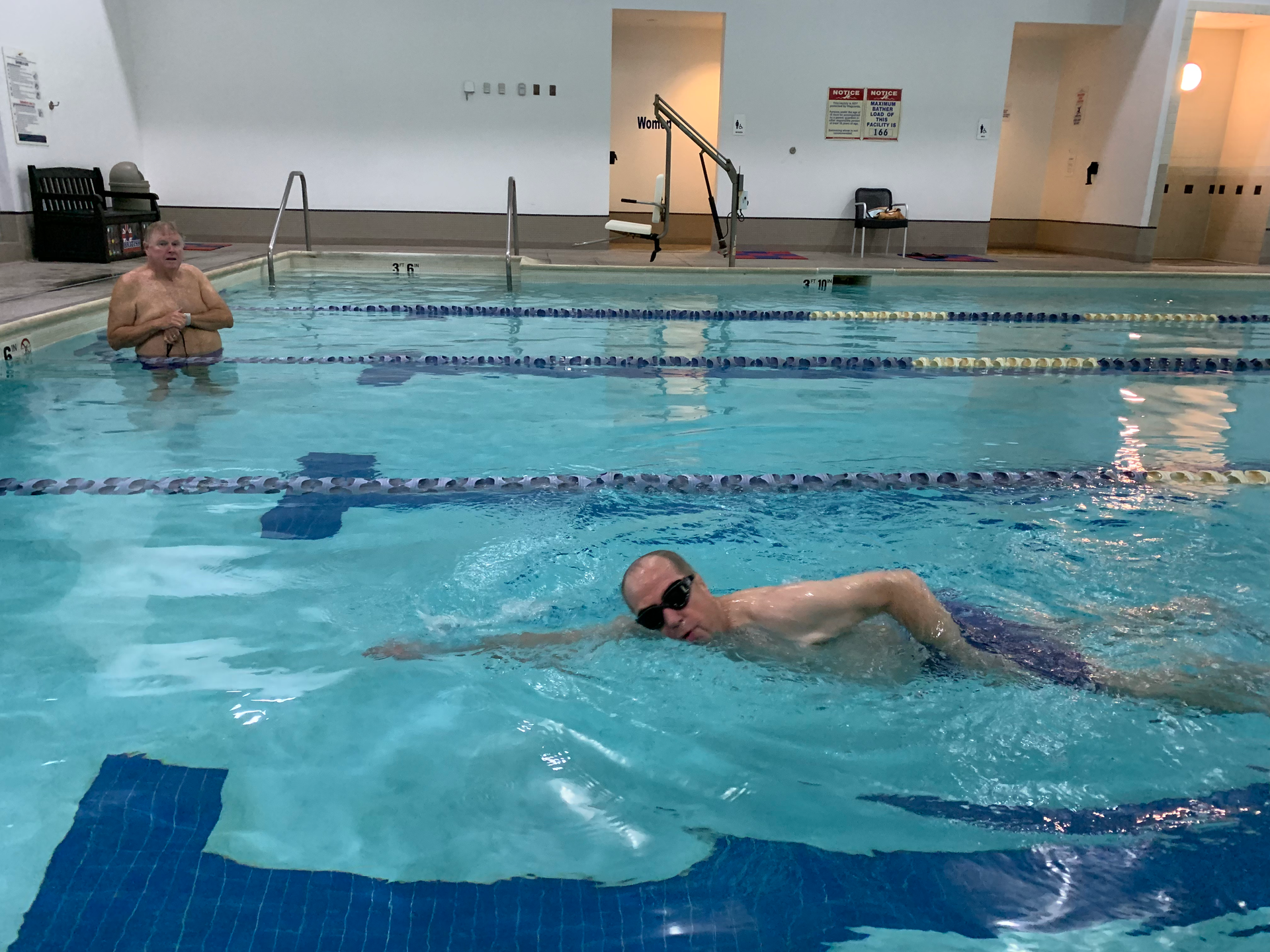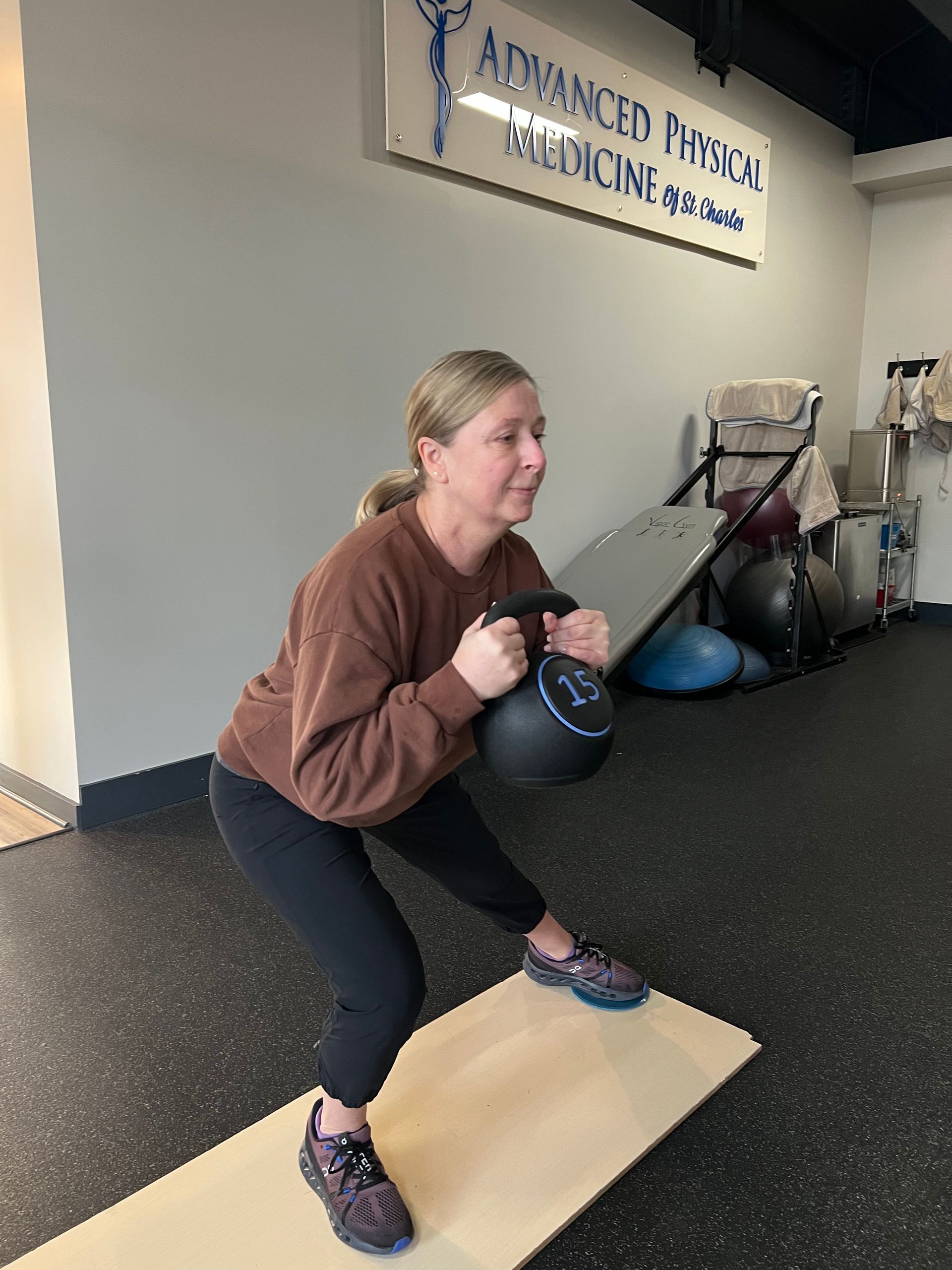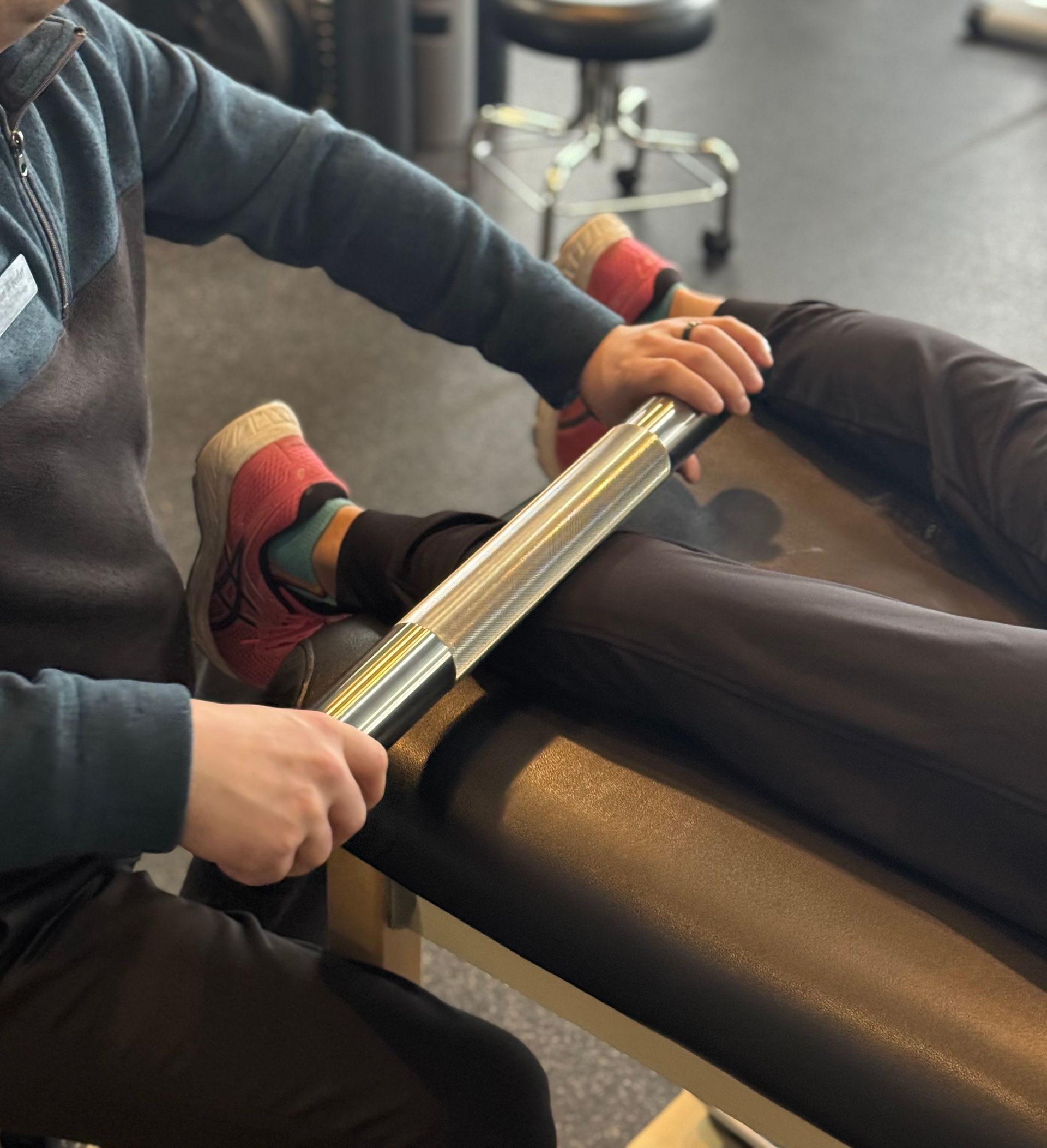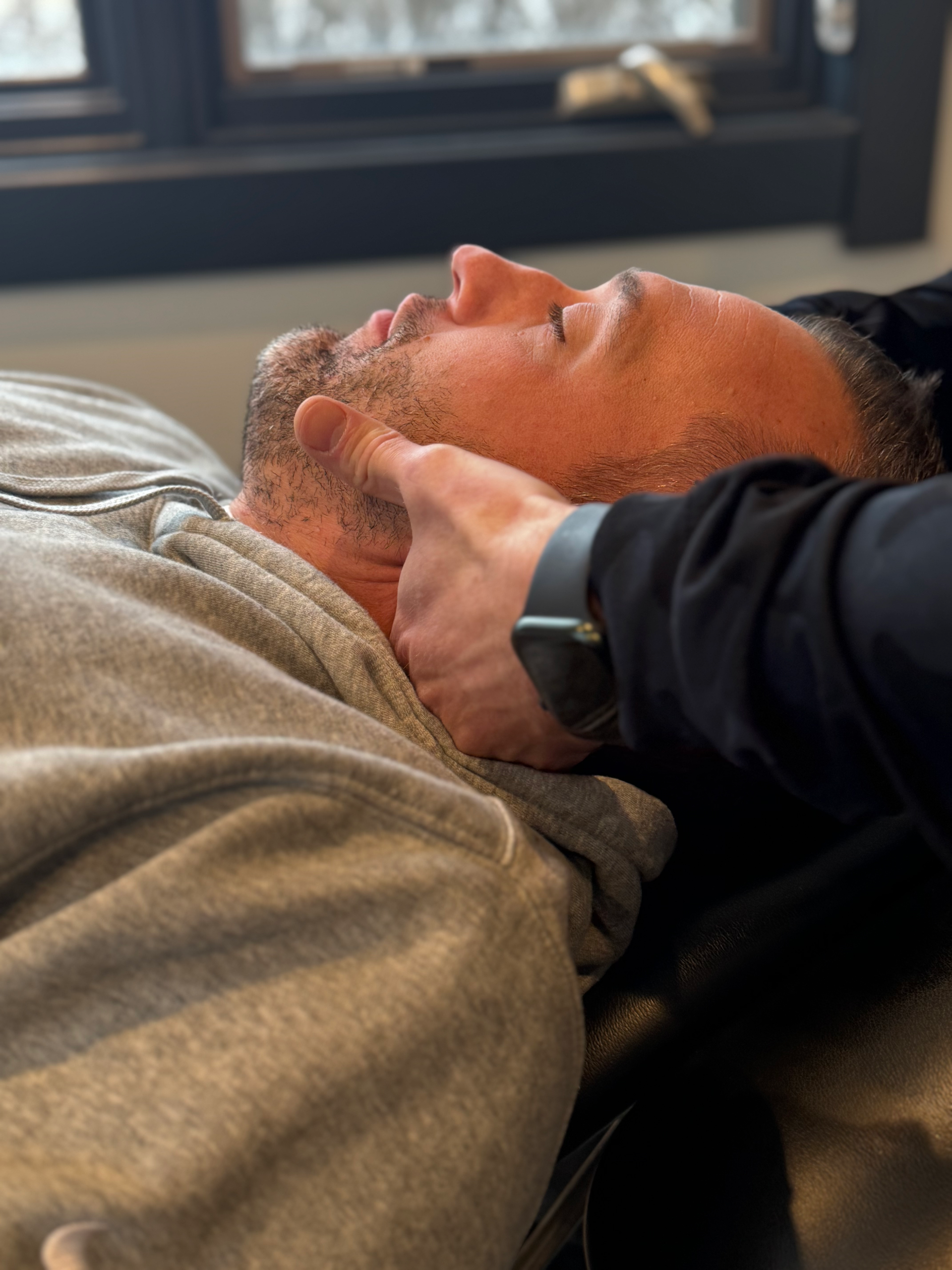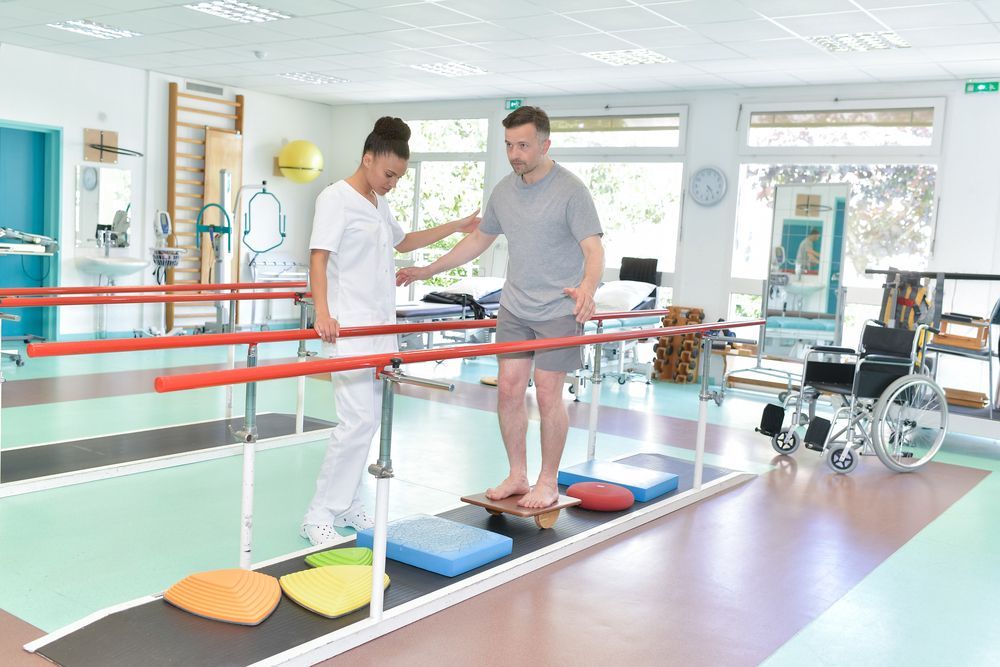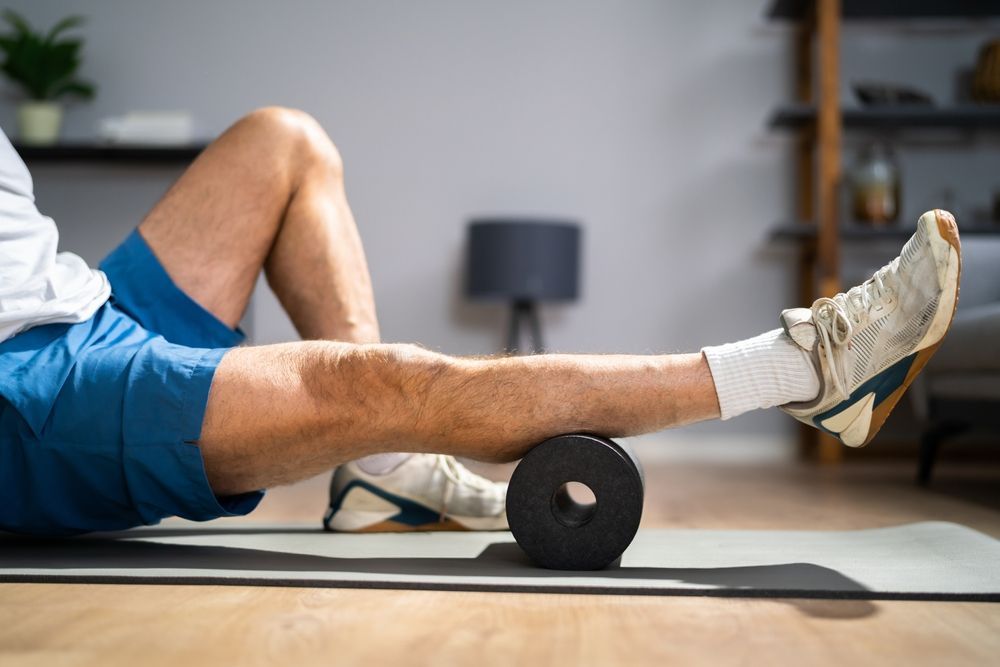Why Carpal Tunnel Symptoms Flare Up at Night
Share this article:
Written by: Advanced Physical Medicine

Carpal tunnel syndrome is a common hand condition that impacts nearly 10 million people in the United States. Caused by pressure on the median nerve that is located in the carpal tunnel, carpal tunnel syndrome can result in a tingling or numbing sensation in the hand. If left untreated, it can result in hand weakness.
One of the most confounding aspects of this condition, however, is the fact that many people report that their symptoms of carpal tunnel syndrome are worse at night.
Understanding Carpal Tunnel Symptoms
Given the fact that carpal tunnel syndrome is one of the most common wrist and hand conditions, it's not surprising that it's frequently diagnosed. However, many people confuse pain in the wrist or hand with carpal tunnel syndrome.
In reality, the most common signs of carpal tunnel syndrome are tingling or numbness in the hand. As the condition progresses, that numbness can lead to weakness, with some people with carpal tunnel syndrome finding that they have a difficult time picking up or holding onto objects.
Why is Carpal Tunnel Worse at Night?
One of the most common complaints among patients who have been diagnosed with carpal tunnel syndrome is that their symptoms flare up and worsen at night, which can make it difficult to get comfortable and get to sleep.
This is not your imagination. Carpal tunnel syndrome symptoms do tend to intensify at nighttime because:
- You are inactive and resting at nighttime. The lack of blood flow in the area heightens the severity of the symptoms.
- You have fewer distractions as you are beginning to wind down and go to sleep, which makes it easier to focus on the discomfort and numbness in your hand.
- You may experience more stress and anxiety at nighttime, which can exacerbate feelings of pain and discomfort.
- You may experience hormonal shifts at nighttime that can increase fluid in the body and ultimately increase the pressure on your wrist.
How to Sleep with Carpal Tunnel
When your carpal tunnel syndrome symptoms begin to intensify just as you are lying down in bed, it can make it difficult to fall asleep. By being aware of the fact that your symptoms can become worse at night and knowing that there are steps you can take to reduce the symptoms of carpal tunnel, you can begin to manage your stress and frustration better. Having realistic expectations and working with a physical therapist can help you begin to sleep better with carpal tunnel syndrome.
How Can Sleep Positioning Affect Carpal Tunnel?
One of the best ways to sleep better with carpal tunnel syndrome is to adjust your sleep positioning. The best sleeping positions for people with carpal tunnel syndrome include:
- Sleeping on your back. By sleeping on your back with your legs elevated or propped, you can naturally reduce pressure on the spine. With less pressure on the spine, you can minimize the risk of compressing the nerves in the shoulders, elbows, and wrist, ultimately improving your carpal tunnel syndrome symptoms.
- Sleeping on your side. While sleeping on your side can help alleviate carpal tunnel syndrome symptoms, it's important to be aware of the fact that you need to support your body if you are going to sleep on your side. Use pillows to support your legs and knees, and hug a body pillow to avoid going into the fetal position. With proper support, you can sleep comfortably without increasing tunnel pressure in your body.
Avoid sleeping on your stomach or in the fetal position, because both of these sleeping positions can increase tunnel pressure in your body and exacerbate the symptoms of carpal tunnel syndrome.
Tips for Carpal Tunnel Pain Relief at Night
In addition to choosing the proper sleep position for carpal tunnel syndrome, you also can use these tips to minimize pain and improve your comfort:
- Wear a wrist brace to bed. While it may not seem like the ideal sleeping gear, a wrist brace can help you maintain a neutral position in the wrist, which is best for your median nerve.

- Monitor the amount of fluids that you consume. While it's essential to stay hydrated, you will want to avoid retaining fluids which can increase swelling and pressure on the median nerve. Avoiding fluid retention is particularly important for women who are experiencing hormonal fluctuations, which could contribute to their carpal tunnel syndrome symptoms.
Lifestyle Changes to Help With CTS
Beyond working to minimize your carpal tunnel syndrome symptoms at night, you can begin to make lifestyle changes that benefit you as a whole. These lifestyle changes can help you better manage your carpal tunnel syndrome symptoms as well as allow you to live a healthier, more fulfilling life:
- Enjoy a healthy, well-balanced diet on a regular basis. If sleep is difficult for you, consider enjoying foods that are rich in tryptophan during your evening meal, such as turkey, baked potatoes, milk, oatmeal, and eggs.
- Take an evening walk after dinner. Light exercise throughout the day is very beneficial, but an evening walk can allow your body to begin preparing for sleep.
- Begin practicing yoga or incorporate meditation into your bedtime routine. These practices can promote mindfulness and can help you feel more calm and rested when you get into bed.
Treatment for Carpal Tunnel Syndrome
Carpal tunnel syndrome is a gradual condition that gets progressively worse over time, so your treatment plan may vary based on the severity of your symptoms. Common treatments for carpal tunnel syndrome include:
- Physical therapy
- Splinting the wrist
- Medication to reduce inflammation
- Ergonomic changes
Request Your Consultation Appointment Today
At Advanced Physical Medicine of St. Charles, we pride ourselves on the fact that we offer our patients personalized physical therapy and chiropractic care. If you are suffering from the signs or symptoms of carpal tunnel syndrome, you may benefit from physical therapy and other complementary, holistic treatment options.
To learn more about carpal tunnel syndrome and the best treatment options available to you, request your appointment at Advanced Physical Medicine of St. Charles today.
Connect with Us:

